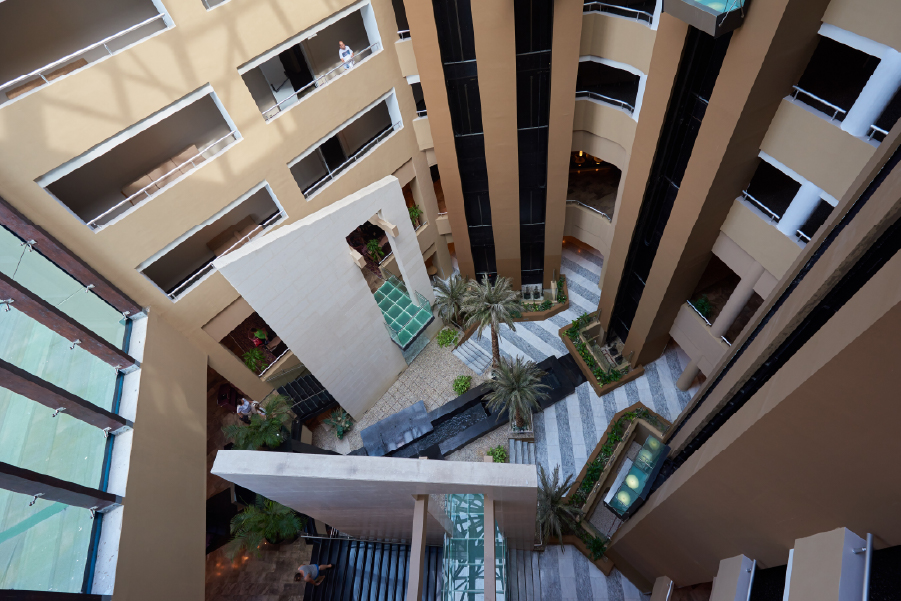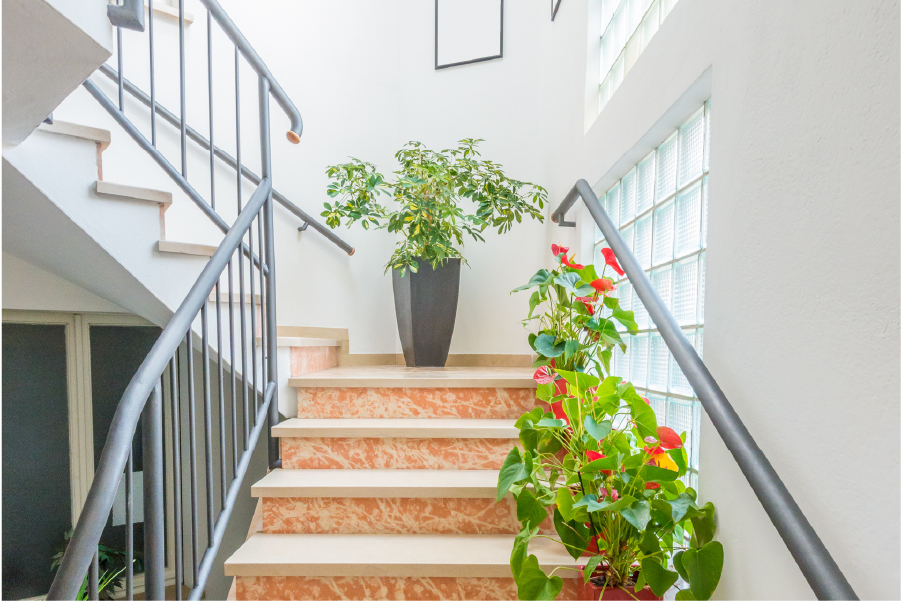Dear WuBookers, among the various accommodation formats the condhotel (or condotel) is distinguished by some distinctive features. In fact, it is a relatively new hybrid form that allows owners and managers to share burdens and earnings of the hotel business.
Let’s find out together what it consists of and what makes it unique.
What is a condhotel and how it works
The word condhotel comes from the combination of condominium and hotel. In fact, wanting to simplify, a condominium hotel is nothing more than a condominium that works like a hotel.
That is, the owners of the individual units are willing to rent out their accommodations for short periods, leaving them under the management of a single entity that performs this task for all.
In the condhotel there are typical hotel services common to all apartments, such as reception, concierge, and housekeeping, and the staff operating within is the same.
Unlike timeshares, where agreements must be made in order to use the property, in condominiums the owners can freely decide when to use it and when to rent it out. Rent of which they receive the proceeds in a variable percentage depending on agreements with the hotelier. Precisely because earnings depend on occupancy, condhotels are frequently found within large cities or popular tourist destinations that can guarantee a steady flow.
In addition, condos of this type are often second homes or vacation and leisure homes – an aspect that guarantees the regular operation of the facility for most of the year.
Condhotels in Italy: opportunities and requirements
In Italy, condhotels were introduced by the “Decreto sblocca Italia” (Decree Law No. 133/14), later converted by Law No. 164/14, and further regulated by the Decree of the President of the Council of Ministers No. 13/2018.
The initial goal was to diversify tourism offer, encouraging employment in the sector and investment in the rehabilitation of existing hotel establishments.
Without going into the details of the regulations, it is important to highlight some essential characteristics, starting with the definition given by the Decree. In fact, a condhotel is defined as: “a hotel establishment open to the public, with unitary management, consisting of one or more real estate units located in the same municipality or parts of them, providing accommodation, ancillary services and possibly food, in rooms intended for receptivity and, in an integrated and complementary form, in housing units for residential use, equipped with autonomous kitchen service, whose total area may not exceed the limits of 40% of the net area intended for rooms.”
In addition to those already mentioned, conditions specified by the standard include:
- the presence of at least 7 rooms, excluding units for residential use, within the same building or in others as long as they are located within a maximum distance of 200 meters from the building where check-in takes place;
- the unified and integrated management of the services of the condhotel and residential rooms/units for the duration stipulated in the contract, and in any case for at least 10 years from the start of operation;
- a single concierge for guests and residential unit owners, with the possibility of a separate entrance for employees and suppliers;
- the execution of a redevelopment project resulting in a classification of the hotel equal to at least 3 stars.
However, the regulation does not explicitly prohibit the construction of new buildings for this purpose, which can be an investment opportunity. However, any regional and municipal regulations must be added to the national ones.
But what are the obligations of owners and hoteliers, and what are the pros and cons for one and the other?

Responsibilities and burdens for owners and operators
Owners of managed housing units within a condominium have responsibilities similar to those of traditional apartment owners. These include, for example, compliance with condominium rules, maintenance expenses and possible home improvements, as well as the activation and payment of any insurance and taxes applied in the country of location.
Other costs, such as maintenance and utilities, may be defined by the contract with the hotelier. In most cases, it is the latter who takes on the management burden, which then includes the sale of the property, accommodation arrangement, guest reception, and housekeeping management.
Operations that can largely be performed through a good hotel PMS such as Zak, WuBook’s all-in-one management. In fact, with its many built-in features, it allows you to get direct and indirect bookings, effectively organize housekeeping, set rates and special offers, get payments and reports. An essential support to reduce time spent on operations and, consequently, risks and management costs.

Pros and cons of a condhotel
Condominium hotels are a viable solution for many reasons, although they do not lack some drawbacks.
To the owners they can bring an extra income, which, however, depends on the popularity of the tourist destination and the facility itself. The percentage of income is also variable and can be equal, lower or higher than that of the hotelier.
Unlike other similar options, this oneoffers some freedom of choice on the frequency of renting, but it is still essential to comply with the terms of the contract. However, the hotel’s services are also always available to landlords, who may face difficulties in applying for loans or other financing processes intended for the purchase of apartments with this use.
In turn, the hotelier may be relieved of the burden of purchasing and managing an entire property and may even consider a renovation of an existing establishment. On the other hand, it is not possible to dispose of the accommodations 100% and one must always consider times of closure to the public during potentially advantageous periods. The coexistence of rooms and entire apartments can attract different guests, thus opening up the facility to new targets and potential markets. On the other hand, however, it is important to ensure that residential units have all the amenities typical of a hotel, while also making appropriate additions in terms of furnishings and equipment when necessary.
In summary, condhotels are an interesting fusion of the hospitality and real estate sectors that, like all existing formulas, reserve pros and cons: carefully studying your local context and informing yourself with your consultants is essential to understand whether or not it is for you.

